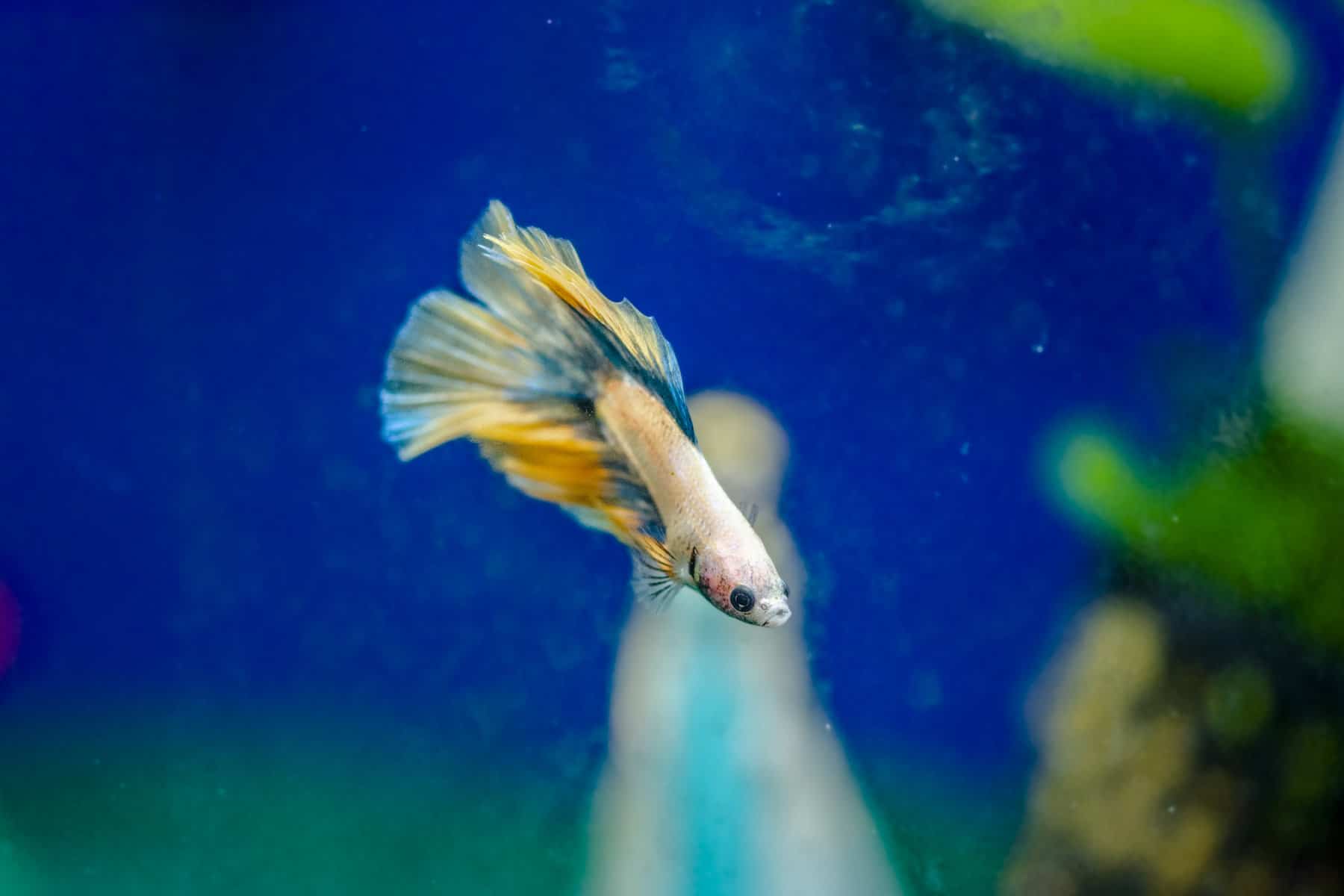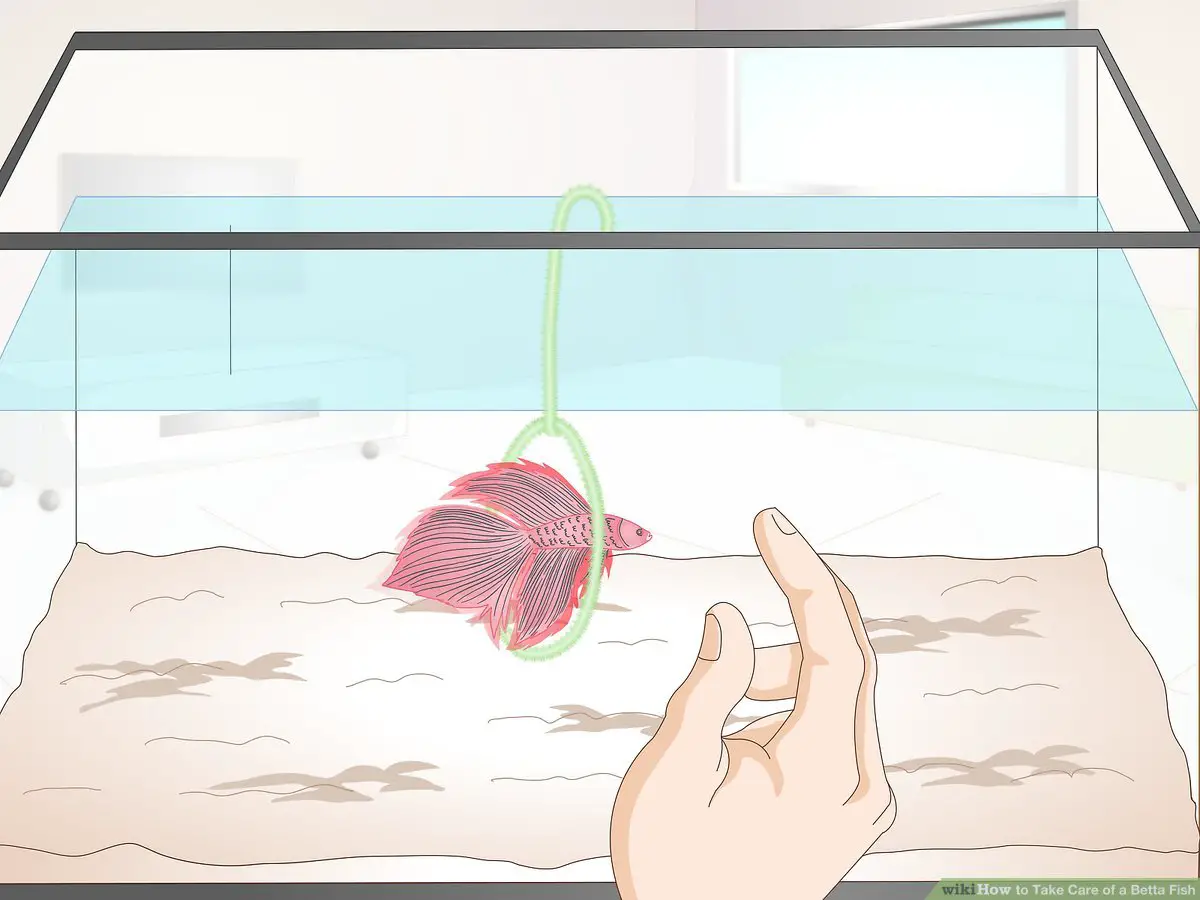Originally posted on May 10, 2023 @ 8:00 am
Last Updated on 7 months by admin
As a pet owner, ensuring your betta fish has a clean and safe environment to live in is crucial. Tap water is an easily accessible and affordable option for filling up your betta’s tank, but there are some important tips and precautions to keep in mind.
In this article, we’ll explore the benefits and drawbacks of using tap water for your betta fish, as well as provide helpful advice on how to treat and condition the water to create a healthy habitat for your finned friend. So, let’s dive in and learn more about using tap water for your betta fish.
Using Tap Water for Your Betta Fish: Tips and Precautions
Using tap water for your betta fish can be a convenient and cost-effective option, but it’s important to keep in mind a few tips and precautions. Firstly, use a water conditioner to remove any harmful chemicals and to balance the pH. Secondly, let the water sit for at least 24 hours before adding it to the tank to allow chlorine and other chemicals to dissipate. Lastly, monitor the water quality regularly and perform partial water changes to maintain a healthy environment for your betta.

Using Tap Water for Your Betta Fish: Tips and Precautions
Betta fish, also known as Siamese fighting fish, are a popular choice among fish enthusiasts. They are known for their vibrant colors, personality, and ease of care. However, one of the most crucial aspects of betta fish care is water quality. While there are various types of water that you can use for your betta fish, tap water is the most readily available option. In this article, we will discuss tips and precautions for using tap water for your betta fish.
Understanding Tap Water
Tap water is the water that comes out of your faucet at home. It is treated with chemicals such as chlorine and chloramine to make it safe for human consumption. However, these chemicals can be harmful to fish, including betta fish. Chlorine and chloramine can damage the gills and other organs of the fish, leading to health issues or even death. Therefore, it is crucial to treat tap water before using it for your betta fish.
To remove chlorine and chloramine from tap water, you can use a water conditioner. Water conditioners neutralize harmful chemicals and make tap water safe for fish. When selecting a water conditioner, make sure to choose one that is specifically designed for betta fish. Some water conditioners may contain ingredients that can harm betta fish.
Preparing Tap Water for Betta Fish
Once you have selected a water conditioner, it is time to prepare tap water for your betta fish. Here are some steps to follow:
- Fill a clean container with tap water.
- Add the appropriate amount of water conditioner to the container.
- Stir the water to distribute the conditioner evenly.
- Let the water sit for at least 30 minutes to allow the conditioner to take effect.
- Check the temperature of the water using a thermometer. Betta fish prefer water temperatures between 76°F and 82°F.
- If the water temperature is too low, you can use a heater to raise the temperature. If it is too high, you can add cool water to lower the temperature.
- Once the water is at the correct temperature, it is ready to use for your betta fish.
Benefits of Using Tap Water
Using tap water for your betta fish has several benefits. Firstly, it is readily available and convenient. You can easily fill a container with tap water and prepare it for your betta fish. Secondly, tap water is often cheaper than other types of water, such as bottled water or reverse osmosis water. Finally, tap water contains minerals that are beneficial to betta fish. These minerals help to maintain a healthy balance in the fish’s body and contribute to overall health.
Precautions When Using Tap Water
While tap water is a convenient and affordable option, there are some precautions that you should take when using it for your betta fish. Firstly, as mentioned earlier, tap water contains chemicals such as chlorine and chloramine, which can harm your fish. Therefore, it is crucial to use a water conditioner to neutralize these chemicals before adding the water to your fish tank.
Secondly, tap water can contain other contaminants, such as heavy metals and pesticides. These contaminants can also harm your betta fish. To reduce the risk of these contaminants, it is essential to use a high-quality water filter. A filter can remove impurities and ensure that the water is safe for your fish.
Finally, tap water can vary in quality depending on where you live. Some areas may have harder or softer water, which can affect the pH level of the water. It is essential to test the pH level of the water regularly and adjust it as needed to ensure that it is suitable for your betta fish.
Tap Water vs. Other Types of Water
While tap water is a popular option for betta fish, there are other types of water that you can use. Here is a comparison of tap water with other types of water:
Bottled Water: Bottled water is often marketed as a safer and healthier option than tap water. However, it is typically more expensive and not always regulated for quality. Some bottled water may also contain high levels of minerals or other impurities that can harm your betta fish.
Reverse Osmosis Water: Reverse osmosis water is a type of water that has been purified through a filtration process. It is often used in aquariums to ensure that the water is free of impurities. However, reverse osmosis water can be expensive and may lack essential minerals that are beneficial to betta fish.
Spring Water: Spring water is collected from natural springs and is often marketed as a healthy and natural option. However, it can vary in quality depending on the source and may contain impurities that can harm your betta fish.
In conclusion, tap water can be a safe and convenient option for betta fish, but it is crucial to take proper precautions. Use a water conditioner to neutralize harmful chemicals, filter the water to remove impurities, and test the pH level regularly. With these steps, you can ensure that your betta fish have a clean and healthy environment to thrive in.
Frequently Asked Questions
Can I use tap water for my Betta fish?
Yes, you can use tap water for your Betta fish, but it’s important to take some precautions to make sure the water is safe for your fish. Tap water contains chlorine and chloramines that can harm your fish. You can use a water conditioner to remove these chemicals and make the water safe for your Betta.
It’s also important to check the pH level and temperature of the water to make sure it’s suitable for your Betta. The ideal pH level for Betta fish is between 6.5 and 7.5, and the water temperature should be between 76 and 82 degrees Fahrenheit.
How do I prepare tap water for my Betta fish?
To prepare tap water for your Betta fish, you should first use a water conditioner to remove chlorine and chloramines. Follow the instructions on the conditioner bottle and add the recommended amount to your tap water.
Next, you should check the pH level and temperature of the water to make sure it’s suitable for your Betta. If the pH level or temperature is not suitable, you can use a pH adjuster or a heater to bring it to the right level.
What are the risks of using tap water for Betta fish?
The main risk of using tap water for Betta fish is the presence of chlorine and chloramines, which can harm your fish. These chemicals can damage the gills of your Betta and make it difficult for them to breathe.
Another risk is the presence of heavy metals and other contaminants in tap water. These can also harm your fish and cause health problems.
Can I use tap water for my Betta fish without a water conditioner?
No, it’s not recommended to use tap water for Betta fish without a water conditioner. Tap water contains chlorine and chloramines that can harm your fish. A water conditioner will remove these chemicals and make the water safe for your Betta.
Using tap water without a water conditioner can cause health problems for your Betta and even lead to death in some cases.
How often should I change the water for my Betta fish?
You should change the water for your Betta fish once a week or every two weeks. This will help maintain the water quality and keep your Betta healthy.
When changing the water, you should remove about 25% of the water and replace it with fresh, conditioned water. Make sure to also clean the tank and any decorations or plants in the tank to remove any debris or waste.

How to Condition Water for Betta Fish?
In conclusion, using tap water for your Betta fish can be a convenient and cost-effective option. However, it is important to take precautions to ensure that the water is safe for your fish. By using a water conditioner, testing the water regularly, and monitoring your fish’s behavior, you can help maintain a healthy environment for your Betta.
Remember, tap water can contain harmful chemicals and minerals that can be dangerous for your fish. It is important to research your local water supply and determine if it is safe for your Betta. If you are unsure, consider using a filtration system or purchasing bottled water instead.
Overall, with proper precautions and attention to detail, using tap water can be a great option for Betta fish owners. By following these tips and monitoring your fish’s health, you can create a safe and healthy environment for your beloved pet.
